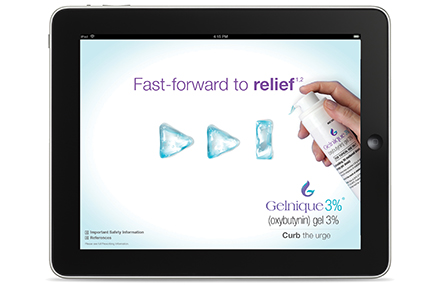Brandkarma president and CEO Ken Ribotsky says last year was characterized by “growth and getting back to our roots.” The mention of growth isn’t a shocker; everyone says “growth,” even firms that didn’t grow revenues by 25% in 2012, as Ribotsky reports Brandkarma did. No, it’s the “getting back to our roots” part that’s more interesting, given how many agencies are desperate to shed all traces of their former brand identities and recast themselves as something new, shiny and single-mindedly digital.
Last July, the company shed the Core Nation banner under which its agencies—Core-Create on the East Coast, Brandkarma on the West Coast and the medical education shop Alpha & Omega—had been housed. The New Jersey and California offices are now known as Brandkarma, while A&O endures as an independently run sister company. “Now we are simply Brandkarma,” Ribotsky says. “This identity best represents what we do and how we feel.”
The agency has also returned to the medical and scientific communications that were once a major part of its business. It’s heralding all the news in a self-promotional campaign. This presented a challenge in itself, Ribotsky says: “It is always difficult to find the time to do these projects. Plus we are our own worst critics.”
But Brandkarma made it happen—without compromising client service. Its relationships with Genzyme, Prometheus Laboratories, ZymoGenetics and Watson Pharma remain strong, with Watson adding its Gelnique 3% drug for overactive bladder to Brandkarma’s slate (the firm also works on Gelnique 10%) and Prometheus adding two brands. CRC Behavioral and Rehabilitation Centers came on board as a client, as did central nervous system disorder specialist Accera.
Ribotsky says the launches for Accera’s Axona and Prometheus’ Anser IFX were particularly gratifying. “Axona is a prescription medical food intended for the clinical dietary management of the metabolic processes associated with mild-to-moderate Alzheimer’s disease. We believe [the professional campaign] creates a very striking visual metaphor for the product,” he explains. For Anser IFX, Brandkarma “created bold symbolism for the category challenge.”
The year had its client frustrations, as Brandkarma lost two brands (Biafine and Ertaczo) in the wake of corporate reshuffles. “We lost the brands we worked on for Ortho Dermatologics because they merged with Valeant Pharmaceuticals. We also lost the work we were doing for Valeant consumer products due to reorganization of those companies,” Ribotsky says.
Replacing some of that lost dermatology business tops Ribotsky’s list of goals for 2013: “We have 20 years of experience in that category.” Beyond that, he remains quite optimistic about what lies ahead for both Brandkarma and the healthcare business.
“This year has brought a different sense of freshness to the industry,” he says. “While there is still a good deal of caution out there, it seems like we are also seeing investment.”
From the July 01, 2013 Issue of MM+M - Medical Marketing and Media








